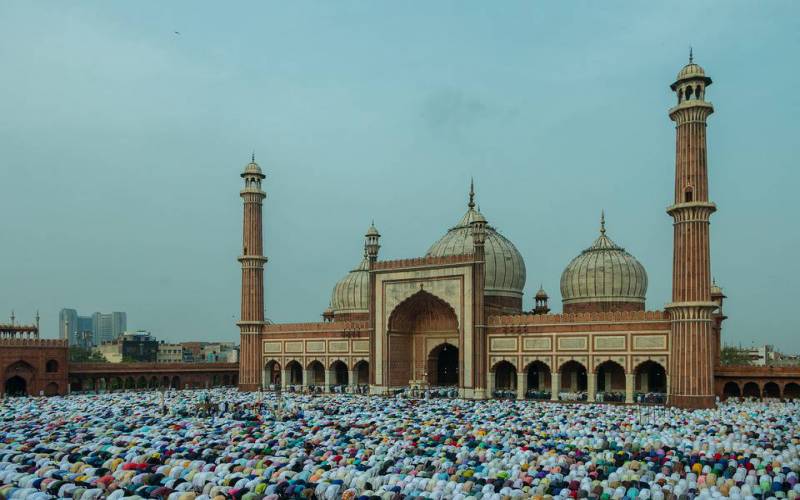Eid al-Fitr Festival, India
The Islamic (lunar) calendar year begins with the Eid-al-Fitr festival, also written and pronounced Eid-ul-Fitr. The Holiday is celebrated on the first day of Shawwal (the 10th month) and marks the breaking of the dawn-to-dusk fast. If the Gregorian (solar) calendar is followed, the date falls eleven days earlier than last year. It is not to be confused with Eid-al-Adha, which follows the month of Ramadan, when Muslims refrain from eating or drinking during daylight hours for 29- or 30-days. Islam contains other five pillars as well, including Sawm (fasting).
It is never possible to predict the exact date far in advance, as religious authorities in different countries rely on the sighting of the crescent moon to signal the start of Eid. If the moon is out and the sky is too bright, or if clouds are blocking the moon, it can be delayed by a day. Ramadan can also start at different times across the globe because of this reason.
The Eid-al-Fitr holiday is regarded as a time for celebration, with Muslims gathering with their friends and families to express gratitude to God following a month of prayer and reflection. Muslims are reminded to be grateful for what they have and to share with those who may be less fortunate during this holiday. Muslims also pay charity (Zakat al-Fitr) as well as giving thanks, but this is a much smaller amount than the 2.5-percent zakat that rich Muslims must pay. Islam embraces this concept as another one of its five pillars. In addition to these payments, some Muslims donate their food to those in need of relief through volunteer work at soup kitchens.
As with Eid al-Fitr, gift-giving is a major celebration element of Eid. Eidia offerings are given to children in money bags, and sweet treats like cookies and dates are exchanged among loved ones, neighbours, colleagues, and even strangers. Members of a family will also exchange gifts, although the majority will be given to the youngest members of a family.
